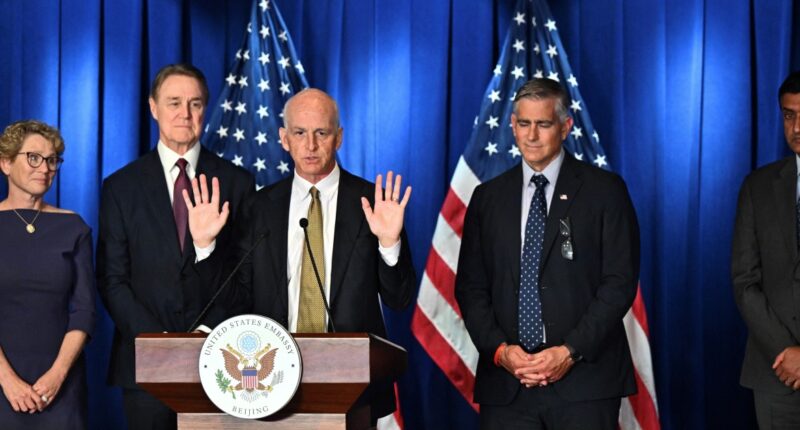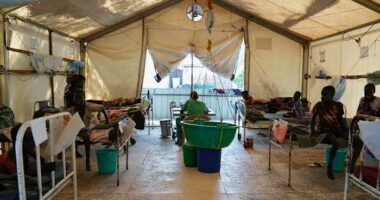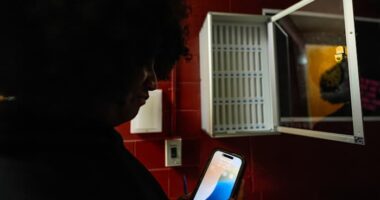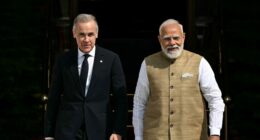Share this @internewscast.com
BEIJING — To resolve their various disagreements, Washington and Beijing need to improve their communication, warned a U.S. lawmaker during an uncommon congressional visit to China. The lawmaker emphasized that a lack of dialogue could prove “dangerous.”
This marks the first visit by House lawmakers to China since 2019, following a visit by a group of U.S. senators in 2023. The backdrop of this trip includes ongoing tensions between the United States and China surrounding issues such as trade, technology, and conflicts in the Middle East and Ukraine.
Leading the bipartisan delegation, Rep. Adam Smith, D-Wash., described their meetings with Chinese officials as “robust and very helpful.” He highlighted the primary goal of the visit as reopening lines of communication between “the two most powerful countries in the world.”
“Our relationship will significantly influence what the world will be like in the coming decades,” Smith remarked to reporters at the U.S. Embassy in Beijing. “It is crucial that we strive to strengthen this relationship and foster mutual understanding.”
The military relationship between the United States and China is of particular concern, he said.
The congressional delegation arrived weeks after Beijing showed off its military might and advanced weaponry in a highly choreographed parade.
Smith noted, “China is experiencing the fastest military and nuclear growth globally. The U.S. has the largest military and nuclear arsenal. A lack of regular communications concerning our capabilities and intentions could be risky.”
In a recent development, President Donald Trump and Chinese leader Xi Jinping had a conversation on Friday, marking their first communication since June. Trump mentioned that they agreed to meet during the upcoming APEC Summit in South Korea from Oct. 31 to Nov. 1, and he plans to visit China early next year.
David Perdue, the new U.S. ambassador to China, said the two leaders had a “great call” and were “looking forward to getting together.”
“I would say that the relationship between President Xi and President Trump is actually very good and very encouraging right now,” he said.
The other members of the delegation are Reps. Michael Baumgartner, R-Wash.; Ro Khanna, D-Calif.; and Chrissy Houlahan, D-Pa. They are in China until Thursday.
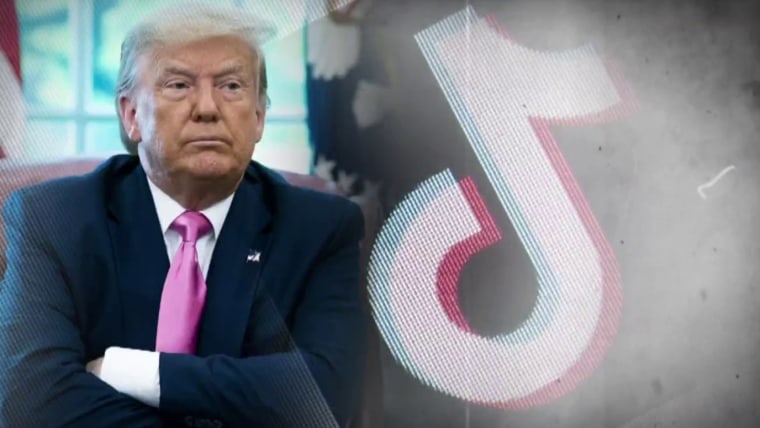
After they arrived Sunday, the lawmakers met with Premier Li Qiang, China’s No. 2 official. On Monday, they met with Vice Premier He Lifeng, who has been leading the Chinese side in trade negotiations with the United States, and Defense Minister Dong Jun.
In their meeting with He, the delegation discussed the talks with China, which accounts for the largest U.S. trade deficit, and urged Beijing “to help stem the flow of fentanyl to the U.S. and reduce non-tariff barriers to U.S. companies seeking to do business in China,” according to a congressional readout.
The delegation also discussed the future of the video app TikTok, which faces a ban in the United States unless its Chinese parent company sells its U.S. assets to U.S. owners, as well as the issue of critical minerals and the export controls Beijing has sought to impose on them as it leverages its near-monopoly in the industry.
In their meeting with Dong, the lawmakers stressed the importance of greater communication between the U.S. and Chinese militaries to avoid miscalculation and conflict.
Communications between the militaries were suspended starting in August 2022 after Rep. Nancy Pelosi, D-Calif., the House speaker at the time, angered Beijing by visiting Taiwan, a self-governing island democracy that China claims as its territory. They were restored in November 2023 after a meeting in the United States between Xi and President Joe Biden.
The lawmakers visiting China said that the U.S. military presence in the Asia-Pacific “should not be construed as a threat to China,” that they sought a peaceful resolution to the issue of Taiwan and that conflict between the United States and China “should not be inevitable.”
Speaking before their meeting, Dong said the visit “shows a good phase in strengthening China-U.S. communications, and I believe it is the right thing to do.”
Janis Mackey Frayer reported from Beijing and Jennifer Jett from Hong Kong.
